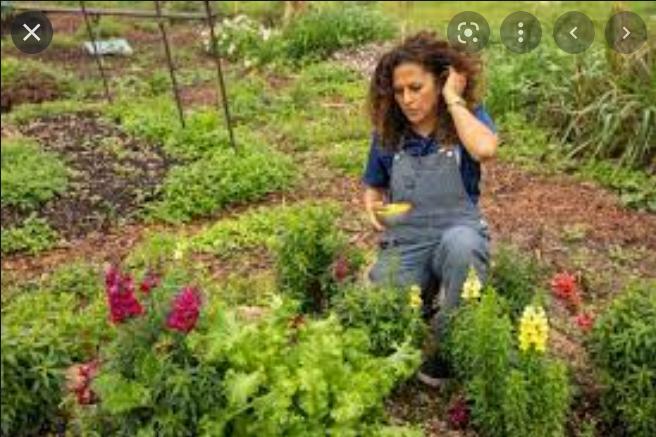Africa-Press – Gambia. A selection of our best stories this year showcases the breadth and depth of our reporting. You can double your donation impact with NewsMatch.From climate-fueled droughts and pesticide pollution to rising food insecurity, 2021 has been another big year for the food system. For the twelfth year in a row, we have worked hard to cover both the disasters and the solutions, the watershed moments, as well as the subtle shifts with surprising implications for everyone who eats.
As a regular reader of Civil Eats, you know that we provide unmatched coverage of these unprecedented times. In 2021, we continued to focus our reporting on the impact of coronavirus on the food system and, in particular, on food access and food security. In addition, we remain unparalleled in journalism for our commitment to reporting on food justice.
We have almost doubled the size of our editorial team, and, as we head into 2022, we look forward to expanding our coverage in myriad ways. In addition to our regular, award-winning reporting, we are launching a new investigative desk to publish stories on corporate power and the food system. In a media landscape shaped by soundbites and spin, investigative reporting is one of the last tools for holding powerful actors to account for their actions. Important truths about our food system exist—and you, our readers, asked us to uncover them.
We also plan to produce more episodes of Civil Eats TV, which was nominated for a prestigious award from the International Association of Culinary Professionals. A character-driven documentary series available for streaming, Civil Eats TV brings to light the tremendous efforts of the people who grow and produce our food, the challenges they face, and the innovations they imagine.
We aim to not just ask the hard questions, but also to report on stories that showcase the positive changes being made in the American food system. Our core mission has remained the same over the past 12 years: To tell the stories behind our food with an eye toward exposing those in power and lifting up voices that would otherwise go unheard. With your support, Civil Eats can dig deeper, grow its voice, and continue to tell the stories behind our food.
Your donation this year will go twice as far through as Civil Eats is once again participating in NewsMatch, a national call to action to support journalism that strengthens democracy from the Institute for Nonprofit News (INN). Through December 31, 2021, NewsMatch will double every individual donation up to $1,000 (including memberships). This work can’t survive without your support. If you value our critical, award-winning reporting, please donate to Civil Eats on Giving Tuesday.
We’re on track to publish more than 250 thought-provoking and breaking news articles about the food system in 2021. Below we list 30 of our best, in chronological order and chosen to showcase the breadth and depth of our reporting. Thank you from all of us at Civil Eats!
1. Does Regenerative Agriculture Have a Race Problem?
BIPOC farmers and advocates say the latest trend in agriculture is built on an age-old pattern of cultural theft and appropriation.
2. College Students Struggle to Enroll in SNAP—but Peer Support Programs Help
As more students face food insecurity during the pandemic, student navigators at the City University of New York help clear SNAP sign-up hurdles.
3. TikTok Sensation Alexis Nikole Nelson Wants You to Love Foraging as Much as She Does
‘As a Black woman, I just want to yell into the heavens about how accessible this information should be and how accessible so many of these foods are.’
4. As Mushrooms Grow in Popularity, a Radical Mycology Movement is Emerging
A new book explores fungi’s role in nutrition, food security, ecological healing, and medicinal sovereignty.
5. As Coffee Rust Reaches Hawaii, Farmers Prepare for a Devastating Blow
A climate-fueled fungus that has decimated coffee regions around the world has reached Kona; what’s on the line is more than a really good cup of coffee.
6. Are Junk Food Companies Using TikTok Influencers to Target Kids?
The biggest stars on the social media platform are reaching new audiences—especially young people—with marketing help from fast food companies.
7. Can California’s Organic Vegetable Farmers Unlock the Secrets of No-Till Farming?
Reducing tillage—which often relies on herbicides—has long been out of reach on organic farms. Now, a group of veteran growers are undertaking a soil health experiment with implications for California and beyond.
8. Civil Eats TV: Planting with Purpose at Urban Tilth
How Doria Robinson, the force behind the community-focused urban farm, transformed a ‘food desert’ into verdant farms, gardens, and open spaces in Richmond, California.
9. The Rise of Guaranteed Income Programs Could Offer a Lifeline for Food Workers
After a successful pilot program in Stockton, California, cities nationwide are considering supporting low-income workers—many of whom work in the food system.10. As the West Faces a Drought Emergency, Some Ranchers are Restoring Grasslands to Build Water Reserves
Western ranchers are restoring diverse, grassland ecosystem practices that can improve the land’s capacity to hold water—and help them hold onto more cattle.
11. Enbridge’s Line 3 Is Putting Wild Rice at Risk—and Indigenous Water Protectors Are Taking a Stand
In northern Minnesota, Anishinaabe people are fighting an oil pipeline that threatens their sustenance and spiritual connection to the land.
12. Has the ‘Buy Black’ Movement Made a Difference for Food Entrepreneurs?
The movement for Black Lives has directed attention to Black restaurateurs, entrepreneurs, and producers, but long-term investment is still lacking.
13. Climate Change Is Melting Arctic Ice Cellars
For generations, Native Alaskans have preserved foods by digging 10 to 20 feet into the permafrost. As the planet warms, more than their food security is at stake.
14. Dead Bees, Sick Residents from Pesticide Pollution in Nebraska
The AltEn plant in the village of Mead has made ethanol from corn coated with pesticides for years. The results have been a disaster for residents and nearby farms.
15. On Pine Ridge Reservation, a Garden Helps Replace an 80-mile Grocery Trip
For the past six years, a garden program has taught residents of South Dakota’s Pine Ridge Reservation how to build financial independence and food security through gardening.
16. ‘Salmon is Life’: For Native Alaskans, Salmon Declines Pose Existential Crisis
Climate change and other factors are disparately impacting Indigenous subsistence fishermen, for whom salmon is the center of their culture.
17. Meet the Black Women Driving New Ag Policy
A new generation of elected officials is working to benefit disadvantaged farmers and African Americans in their states by serving on agriculture committees, introducing legislation to promote equity in agriculture, and fighting food insecurity.
18. Is the Future of Big Dairy Regenerative?
Some of the world’s largest dairy companies are betting on regenerative ag to produce the grain they feed their animals. Critics say their practices could preserve the industrial approach—and lead to greenwashing.
19. The Next Chapter for Farm to School: Milling Whole Grains in the Cafeteria
A new pilot project in California is purchasing a mill for a school cafeteria, marking the next step in years-long effort to bring local, whole grains to schools around the country.
20. Civil Eats TV Women in the Wool
We profile women working the land, with animals, and with wool to create a local fiber shed: ‘If you care about where your food comes, you should care about where your fiber comes from.’
21. Can Aquaculture Help Women Secure a New Foothold in the Seafood Industry?
Women have long played a crucial role in global fisheries, yet their work remains largely invisible. As a growing number start aquaculture businesses, it’s unclear if the industry will provide a path toward more independence and recognition.
22. Tourism vs. CAFOs: A New Front in the Fight Against Industrial Animal Ag
In rural communities, residents and family farmers are increasingly pitting the need to protect their waterways and natural areas for outdoor recreation against factory farms, which they say pollute the environment and threaten tourism dollars.23. Planting a Life—and a Future—After Prison at Benevolence Farm
The residential and employment program on a North Carolina organic farm helps formerly incarcerated women find a new path.
24. Climate Anxiety Takes a Growing Toll on Farmers
Extreme weather is bringing anguish and grief to an already precarious way of life.
25. Craft Beer Faces a Gender and Race Reckoning
An industry that has long touted its equity and progressive values is finally being forced to address its ‘white dudes with beards’ problem.
26. Don Lewis Is Reviving the Grain Economy in New York’s Hudson Valley
The heritage wheat wizard is adapting grain varieties to present-day climate conditions, developing a local market, and working to diversify the food system.
27. The Resurgence of Waffle Gardens Is Helping Indigenous Farmers Grow Food with Less Water
In the face of climate change and persistent droughts, a growing number of people from Zuni Pueblo in New Mexico and elsewhere are adopting the traditional farming practice.
28. What the Meat Industry Can Learn from the Downfall of Belcampo
When the pioneering, pasture-based company abruptly closed after serious sourcing allegations, it sent shockwaves through the industry. A grass-finished beef producer talks with her peers about what went wrong and what comes next.
29. After a Fraught History, Some Tribes Finally Have the Power to Rethink ‘Commodity Foods’
The USDA’s Food Distribution Program on Indian Reservations (FDPIR) is both loved and reviled. Now, seven tribes have the opportunity to bring more fresh, local, traditional foods to their communities.
30. Meet the African Farmer Growing Rice in New York’s Hudson Valley
Following the Jola traditions of Gambia, and made possible by the region’s warming climate, Nfamara Badjie is cultivating rice in an unusual setting—and harvesting to the rhythm of the African drum.
For More News And Analysis About Gambia Follow Africa-Press






